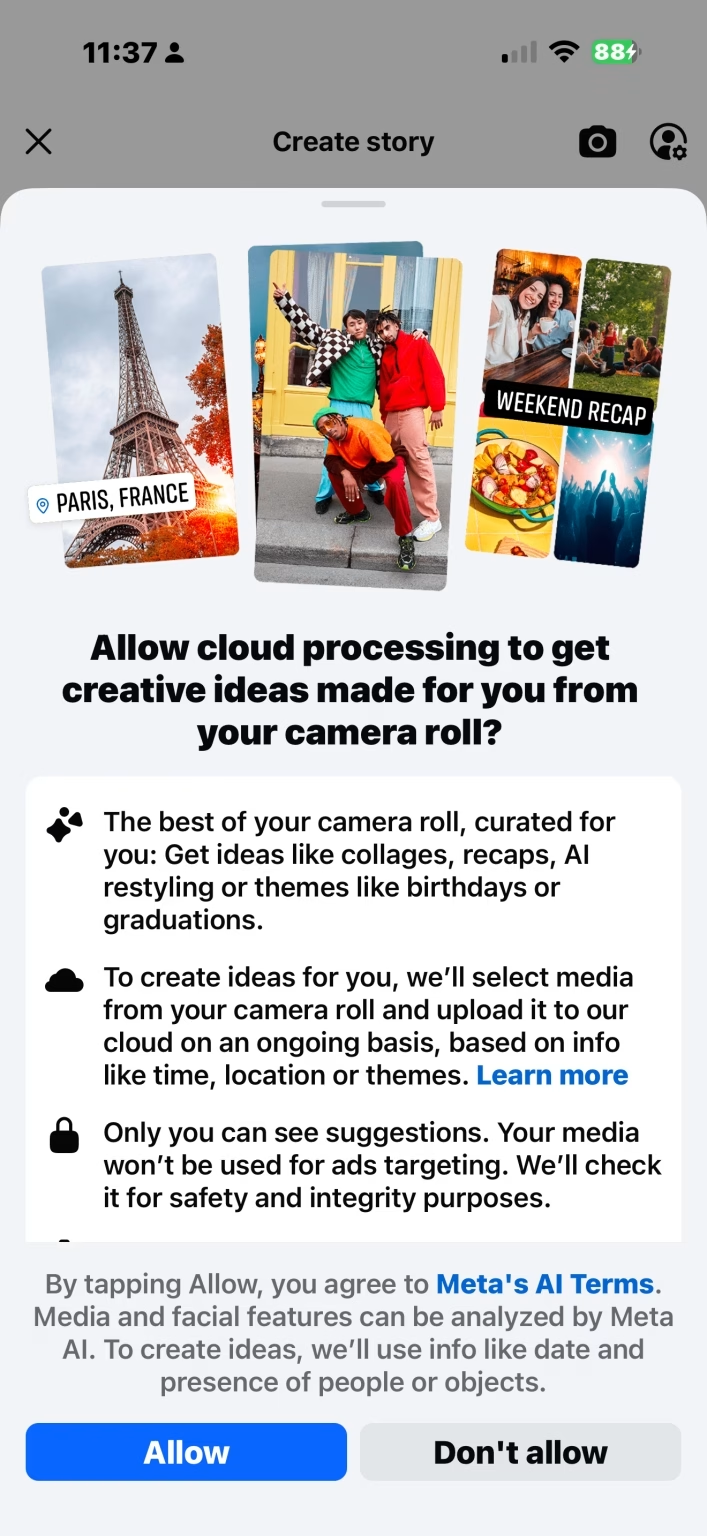Facebook's Meta AI and Your Camera Roll: A Deep Dive into Unshared Photos
It seems like every other week, there's a new development in the world of AI, and Meta, formerly known as Facebook, is certainly not sitting on the sidelines. Their latest move has certainly caught my eye, and probably yours too: Meta AI is now asking for permission to access photos in your camera roll that you haven't even shared yet. This isn't just about photos you've posted; we're talking about your personal, private collection. It's a significant shift, and one that warrants a closer look.
The New Frontier of Photo Enhancement: What's Happening?
It's an interesting proposition, isn't it? On the one hand, who doesn't want their photos to look a bit better with minimal effort? AI-powered editing can do some truly impressive things these days, from subtle lighting adjustments to more dramatic stylistic changes. But on the other hand, the idea of an algorithm sifting through every single photo on my phone, even those embarrassing ones from college or the countless blurry shots of my cat, well, it gives me pause.
Unpacking the "Cloud Processing" Conundrum
Here's where things get a bit more complex, and frankly, a little concerning. While the initial prompt might seem straightforward – "Hey, want AI to help edit your photos?" – some reports indicate that opting into what Meta calls "cloud processing" could inadvertently grant Meta AI much broader access. We're talking about your entire camera roll potentially being uploaded to Meta's servers for AI analysis.
This isn't just about a quick scan on your device. Uploading private photos to the cloud, even for processing, opens up a whole new can of worms. What happens to those photos once they're on Meta's servers? How long are they stored? What other data might be extracted or inferred from them? These are the kinds of questions that privacy advocates and tech experts are rightly asking. It's a subtle but crucial distinction between on-device processing and cloud-based processing, and it's one that users might not fully grasp when presented with a simple "yes" or "no" option.
Why Now? Meta's AI Ambitions and the Broader Trend
This move isn't happening in a vacuum. It's part of a much larger, overarching strategy by Meta to deeply integrate AI into every facet of its platforms. We've seen Meta pushing its AI chatbot, its generative AI tools, and now, it's extending to personal photo libraries. The trend across the tech industry is clear: AI is the next frontier, and companies are racing to embed it into user experiences in novel ways.
For Meta, this could be about enhancing user engagement. If people can create more visually appealing content with less effort, they might share more, and spend more time on the platform. It's also about data. The more data Meta's AI models have, the better they can become. And what's a richer source of personal data than an uncurated camera roll? It's a goldmine for understanding user preferences, activities, and even demographics, which could then be used to refine AI models or, let's be honest, target ads.
The Privacy Tightrope Walk: User Control and Transparency
The core issue here boils down to privacy and user control. Users have a reasonable expectation that photos they haven't chosen to share remain private. This new feature challenges that expectation. While Meta is asking for permission, the devil, as always, is in the details of that consent. Is it truly informed consent if the implications of "cloud processing" aren't explicitly clear?
We've seen this play out before, haven't we? Companies pushing boundaries, sometimes a little too far, and then having to backtrack or clarify due to public outcry or regulatory pressure. In regions with stringent data privacy laws, like the EU, this move could face significant scrutiny. It highlights the ongoing tension between technological innovation and individual privacy rights. Users want cool features, but they also want to feel secure about their personal data. It's a delicate balance, and Meta's walking a very thin line here.
Navigating Your Options: What Users Can Do
So, what's a user to do? If you're concerned about Meta AI accessing your unshared photos, the good news is that you do have options. When prompted, you can simply decline the request. If you've already opted in and are having second thoughts, it's crucial to check your app settings. Most platforms, including Meta's, usually provide ways to revoke permissions or opt out of specific features. Look for settings related to "AI features," "photo access," or "cloud processing" within the Facebook or Instagram app. It might take a bit of digging, but it's worth the effort if privacy is a top concern for you.
This new development from Meta is a powerful reminder that we, as users, need to remain vigilant about the permissions we grant to apps and services. The convenience of AI-enhanced photos is tempting, but it's important to weigh that against the potential implications for our personal data. It's a conversation that's only going to get louder as AI becomes even more pervasive in our digital lives.
